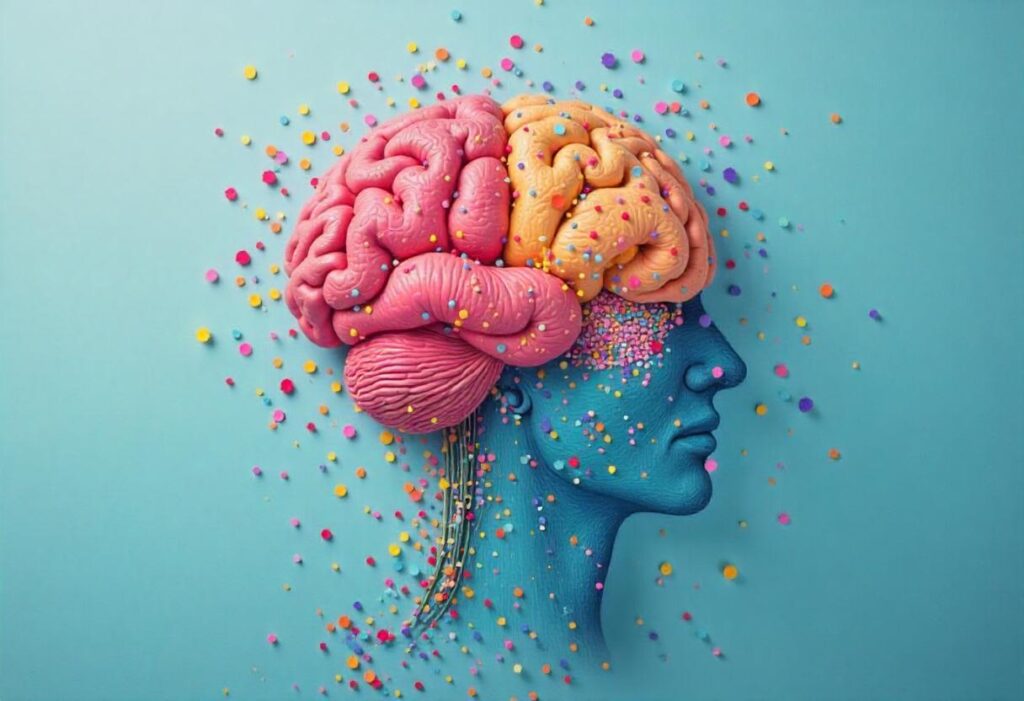Attention Deficit Hyperactivity Disorder is a dreadful disease that requires immediate care, making it crucial to find the right psychiatrist for the treatment. Whether you’re seeking an ADHD assessment for yourself or a loved one, choosing a qualified professional is key to getting an accurate diagnosis and effective treatment. This guide aims to help you navigate the process of finding the best psychiatrist for ADHD, ensuring you receive the care you need.
In this comprehensive guide, you’ll learn about the importance of understanding ADHD and its symptoms, as well as the steps to find a specialist who can provide a thorough assessment. We’ll explore what to expect during the ADHD treatment and discuss the differences between seeing a psychologist or psychiatrist for the disease. You’ll also gain insights into the questions asked during an ADHD evaluation, helping you prepare for your appointment and get the most out of your consultation. This unique set of questions are prepared specially by emindally psychiatrist.
Table of Contents
Understanding ADHD and Its Impact
It is a neurodevelopmental condition that affects both children and adults. To find the best psychiatrist for ADHD, it’s crucial to understand its types and how they can impact daily life.
Types of ADHD
There are three main types of ADHD:
- Inattentive type: This type primarily involves symptoms of inattention and distractibility. People with this type may have difficulty focusing, organizing tasks, and following instructions.
- Hyperactive-impulsive type: This type is characterized by symptoms of hyperactivity and impulsivity. Individuals may fidget excessively, have trouble sitting still, and act without thinking.
- Combined type: This is the most common type, featuring symptoms of both inattention and hyperactivity-impulsivity.
Common Symptoms
ADHD symptoms can vary depending on the type and individual. Some common signs include:
- Difficulty in paying attention to detail
- Easily distracted by unrelated thoughts or stimuli
- Trouble organizing tasks and managing time
- Forgetfulness in daily activities
- Fidgeting or squirming (simple restless movements like shaking hands or legs) when seated
- Talking excessively
- Interrupting others or impatience for one’s turn
It’s important to note that ADHD symptoms must begin in childhood (before age 12) and persist for at least six months.
Effects on Daily Life
ADHD can significantly impact various aspects of a person’s life
- Work performance: Adults with ADHD may struggle with meeting deadlines, organizing tasks, and maintaining focus. This can lead to reduced productivity and potential job loss.
- Relationships: Impulsivity and emotional regulation complexities can affect personal and professional relationships.
- Education: Students with ADHD may face challenges in academic performance due to poor attention capabilities.
- Financial management: Impulsive spending and trouble with organizing things can lead to financial issues.
- Mental health: ADHD often co-occurs with conditions like anxiety and depression, which can affect a person’s mental health.
- Self-esteem: Frequent job changes or academic struggles may be observed that degrade self-confidence over time.
Understanding these impacts is crucial when seeking a psychiatrist for ADHD assessment and treatment.
The Importance of Choosing the Right Psychiatrist
Selecting the right psychiatrist is crucial for effective ADHD diagnosis and treatment. A qualified professional can significantly improve your quality of life by providing accurate assessments and tailored treatment plans.
Qualifications to Look For
Look for a medical specialist with advanced training in assessing, diagnosing, and treating ADHD and related disorders. Ensure they hold general and specialist postgraduate fellowship qualifications from accredited institutions. A psychiatrist with a special interest in ADHD and evidence of ongoing professional development is ideal.
Experience with ADHD Patients
Experience plays a vital role in ADHD treatment. An ADHD specialist should have extensive experience applying current best scientific-practical guidelines in clinical practice. They should be proficient in interpreting and applying outcomes of essential neurocognitive tests to complete the diagnosis and treatment.
A psychiatrist with experience treating ADHD patients will be better equipped to understand the complex issues faced by individuals due to stigma, taboo, and media stereotypes.
Treatment Approaches
Most psychiatrists use a combination of medication and behavioural therapy for the best results as it can help manage common ADHD symptoms such as inattentiveness, hyperactivity, and impulsivity. Stimulant medication is also often used.
However, it’s important to note that medication alone doesn’t cure ADHD. A good psychiatrist will work with you to develop an individualized treatment plan that incorporates appropriate medication and behavioural therapy based on your specific needs and preferences. They should be able to explain the potential side effects of ADHD medications, such as feelings of jitteriness, loss of appetite, difficulty sleeping, and mood swings. Behavioural therapy is another crucial component of ADHD treatment.
Remember, managing ADHD can be challenging, and what works for one person may not work for another.

Steps to Find the Best ADHD Psychiatrist
Research and Recommendations
Start by researching ADHD specialists in your area. You can contact or reach out to national associations like the Attention Deficit Disorder Association (ADDA) or Children and Adults with Attention-Deficit/Hyperactivity Disorder (CHADD) for recommendations. These organizations can provide information about professionals in your area who specialize in ADHD treatment.
Another option is to ask your general practitioner (GP) for a referral. In Australia, you’ll need potential access to Medicare rebates for your sessions.
Initial Consultations
Once you’ve identified the ADHD specialist, schedule an initial consultation with them. During these appointments, the psychiatrist will conduct a comprehensive assessment of your mental health, going beyond just ADHD symptoms. This thorough evaluation is crucial for an accurate diagnosis and treatment plan.
Be prepared to discuss your symptoms, medical history, and any concerns. The psychiatrist may ask about your childhood experiences, request additional information from family members or review school reports to get a complete picture of your symptoms over time.
Evaluating Compatibility
During your initial consultations, assess whether you feel comfortable with the psychiatrist. Consider asking the following questions with peers to evaluate their expertise and approach:
- How many clients with adult ADHD have approached him for treatment?
- How long have he been working with adults with ADHD?
- What is the assessment and treatment process involved?
- What are the costs involved?
- Had he received any special training in diagnosing or treating adult ADHD?
What to Expect During ADHD Treatment
When you begin treatment for ADHD with a psychiatrist, you’ll embark on a journey to manage your symptoms effectively. Understanding the process can help you feel more prepared and confident as you work towards improving your quality of life.
Diagnostic Process
The first step in ADHD treatment is a comprehensive diagnostic assessment. This process typically involves:
- Your psychiatrist will ask detailed questions about your symptoms, medical history, and daily functioning. For children, this may include separate interviews with parents or caregivers.
- Rating scales: These questionnaires help evaluate your symptoms and compare them to normative data. Your psychiatrist may use both broad-band scales to assess overall functioning and narrow-band scales specific to ADHD symptoms.
- Information gathering: Your psychiatrist might request reports from other healthcare providers, educators, or employers to get a complete picture of your symptoms across different settings.
- Medical assessment: This step helps rule out other conditions that might mimic ADHD symptoms and identifies any co-occurring health issues.
The diagnostic process may take several hours and could be spread across multiple sessions. It’s important to be patient and provide as much information as possible for an accurate diagnosis.
Treatment Options
Once diagnosed, your psychiatrist will work with you to develop a personalized treatment plan. ADHD treatment typically involves a combination of approaches:
- Medication: These are common options for managing ADHD symptoms. Your psychiatrist will carefully consider the most appropriate medication based on your individual needs.
- Behavioural therapy: This may include cognitive-behavioural therapy (CBT) to help you recognise and change negative thought patterns and behaviours associated with ADHD.
- Psychoeducation: Learning about ADHD and its impact on your life is an essential part of treatment. Your psychiatrist will provide information and resources to help you better understand and manage your condition.
- Skills training: This might involve learning organizational techniques, time management strategies, and other practical skills to cope with ADHD symptoms in daily life.
- Family or relationship therapy: For some individuals, especially children and adolescents, involving family members in treatment can be beneficial.
Follow-up Care
Ongoing monitoring and follow-up care are crucial components of ADHD treatment. Here’s what you can expect:
- Your psychiatrist will schedule follow-up appointments to assess your progress and make any necessary adjustments to your treatment plan.
- Medication management: If you’re taking medication, the psychiatrist will monitor its effectiveness and any potential side effects. They may adjust the dosage or type of medication as needed.
- Collaborative approach: They may coordinate with other healthcare providers, coaches, or educators involved in your care to ensure a comprehensive treatment approach.
- Long-term support: ADHD is often a long-lasting condition, so they will work with you to develop strategies for managing symptoms over time.
- Transition planning: For adolescents and young adults, the psychiatrist will help plan for the transition to adult ADHD care, ensuring continuity of treatment.
Conclusion
Finding the right psychiatrist for ADHD is a vital step to manage symptoms and lead a peaceful life. This guide has shed light on understanding ADHD, the importance of choosing a qualified professional, and what to expect during treatment. By following these steps and considering factors like education, experience, and treatment approaches, individuals can find a psychiatrist who best suits their needs.
To get started on your path to better ADHD management, consider reaching out to emindally psychiatrist for top-notch treatment in Australia. By taking action and seeking help, you’re taking a significant step towards understanding and managing your ADHD symptoms more effectively.
Frequently Asked Questions (FAQs)
1. What type of doctor should I consult for ADHD?
Attention Deficit Hyperactivity Disorder (ADHD) can be evaluated and diagnosed by various professionals including psychiatrists, psychologists, neurologists, and master-level counsellors.
2. How can I find a specialist for ADHD?
Finding the right ADHD specialist may require some research. Begin by seeking recommendations from your child’s primary care physician. Additionally, you can consult other parents of children with ADHD, or seek advice from your child’s educators.
3. Is it advisable to see a psychiatrist for ADHD?
Yes, consulting a psychiatrist for ADHD is beneficial as they are not only qualified to diagnose ADHD but can also prescribe necessary medications and treat any co-existing mental health conditions.
4. Who is best qualified to diagnose ADHD?
ADHD diagnosis should be conducted by a healthcare professional who is familiar with this disorder. Mental health professionals such as psychologists or psychiatrists, as well as primary care providers like pediatricians, are equipped to diagnose ADHD.

